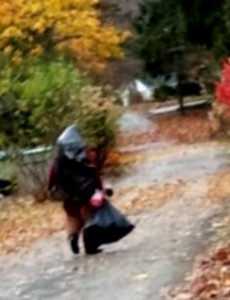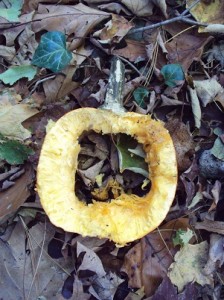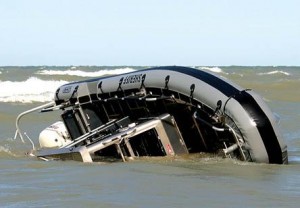Yesterday it poured rain, and as I often do during inclement weather, I “walked” Jack from the warm, dry, front seat of my car. He happily ran alongside, stopping to sniff and lift his leg here and there. Suddenly another car approached at a narrow spot on a hilly road, forcing both vehicles to jockey back and forth in an effort to pass.
Jack continued trotting ahead but doubled back when he saw I hadn’t followed. Then, just as I resumed driving, he ran between both cars, confused as to which vehicle was “his”. In my rear view mirror I saw him take off next to the other car but didn’t worry, knowing he’d eventually appear at home. Still, I decided to wait a few minutes where I was, just in case he came looking for me.
When he didn’t, I decided to make one loop around the high dune road, which had been his running direction, and if I didn’t find him, would head for the house. Driving at a crawl through sideways rain, I scanned the bushes and woods for Jack but didn’t see him. I did, however, see something interesting: Thelma.
Seven months ago my sister and I had a strange encounter with this 76 year old woman at the beach (“Giving Her All,” April 10, 2011). We’d never seen her before then but learned her name was Thelma, and apparently she earned bits of money tidying up yards and hauling away leaves in black garbage bags.
We looked for her after that day and watched all summer without success, but yesterday, when I least expected it, I found her.
At the top of a steep incline, she was trudging along dressed in a black garbage bag torn to double as a raincoat, using one corner of it as a hood. I pulled alongside her and rolled down the window. “Thelma! Want a ride?”
“Appreciate it,” she said, and without knowing who I was or even looking at me, she climbed right in. Pulling off her garbage bag, she stuffed it into a filthy grocery sack and said, “This weather’s no good for raking.”
“Where’re you headed?” I said.
“Home. I’m giving up for today.”
“Where’s home?” I said.
“Six miles. I’ll show you.”
“You mean you were going to walk 6 miles in this storm?”
“I do it all the time,” she said. “It’s good to keep moving.”
She was dressed in well-stained, insulated coveralls, a navy shirt, tan sweater and cranberry hoodie, all in need of a wash.
“Where’re you going?” she said, looking at me for the first time.
“I’m trying to find my dog.”
“Oh, I love dogs,” she said, “and they love me.”
“Then you must be a very good person,” I said. “Dogs like good people.”
“That’s true,” she said. “I’ve had lots of dogs. What color is yours?”
“Black. We can look together.”
“We’ll find him,” she said.
(To be continued…)
“God will never forget the needy; the hope of the afflicted will never perish.” (Psalm 9:18)






